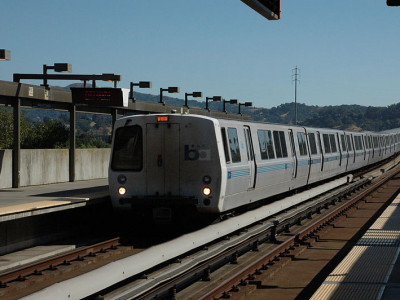Public transit
Are Transit Strikes Bad for the Environment?
Banning public transit strikes might help the environment
Even if you’re not from the Bay Area, you’ve probably heard about the labor troubles at the Bay Area Rapid Transit system (BART) – the rail system that is one of the largest public transit providers here in the Bay Area in terms of passengers. Hundreds of thousands of commuters use the BART system on …
Continue reading “Are Transit Strikes Bad for the Environment?”
CONTINUE READINGHow the Democrats’ Supermajority Can Improve California’s Downtowns
Now that Democrats in California have achieved the Pete Wilson Supermajority in the legislature, they should focus on two key reforms to revitalize the state’s downtowns and ensure more efficient land use. First, the supermajority should put on the ballot a constitutional initiative to lower the threshold for passing local tax measures to fund transit. …
Continue reading “How the Democrats’ Supermajority Can Improve California’s Downtowns”
CONTINUE READINGElection Day Shows the Need for Transit Tax Reform in California
Tuesday seems not have been a great day for local transit advocates in California. Measures to increase or extend tax measures for public transit failed in Los Angeles County (Measure J) and currently trail in Alameda County (Measure B1), with mail-in ballots still being counted. But when I say “failed,” what I mean is they …
Continue reading “Election Day Shows the Need for Transit Tax Reform in California”
CONTINUE READINGSaving Public Transit: The Role of Technology
New technologies are quickly changing how we provide and interact with public transit. From Smart Phone applications that chart transit trips, new software that enables ride and bike sharing, or stations that function as “mobility hubs” with new ways to provide rider access, these technologies hold the promise to greatly enhance our existing transit systems. …
Continue reading “Saving Public Transit: The Role of Technology”
CONTINUE READINGSaving Public Transit: Neighborhoods Matter
Public transit depends on neighborhood design to be successful. Without convenient neighborhoods that orient housing and jobs around transit, buses and trains will waste scarce public dollars by failing to attract sufficient riders and offering poorer quality service to those who do ride. Mott Smith, a Los Angeles-based real estate developer and advocate who focuses …
Continue reading “Saving Public Transit: Neighborhoods Matter”
CONTINUE READINGConference on Saving Public Transit, Friday November 2nd at UCLA Law (Simulcast Available)
Please join us on Friday, November 2nd, for a free (with registration) conference on strategies to save public transit during a time of shrinking budgets. The conference will feature experts on transit finance, real estate development around transit, and new technologies that may revolutionize transit in the coming years. Art Leahy, Chief Executive Officer of …
CONTINUE READINGDoes Public Transit Improve Air Quality?
Yihsu Chen and Alexander Whalley of UC Merced think they know. They have analyzed some useful data from the opening of Taipei’s new subway, in a recent article in the American Economic Journal: Economic Policy: The transportation sector is a major source of air pollution worldwide, yet little is known about the effects of transportation infrastructure …
Continue reading “Does Public Transit Improve Air Quality?”
CONTINUE READINGWill Expanded Federal Transit Financing Result In More Toll Roads?
In a time of infrastructure needs and scaled-back public sector budgets, finding dollars for public transit projects can be a challenge. Transit advocates hit on a great formula, however, starting in Los Angeles with the “30/10” Plan. 30/10 would allow Los Angeles to build 30 years worth of sales tax-funded transit projects in 10 years, …
Continue reading “Will Expanded Federal Transit Financing Result In More Toll Roads?”
CONTINUE READINGHow Cities and Counties Can Improve Public Transit
Flashy and expensive new transit projects, such as the Los Angeles subway or San Francisco’s proposed Central Subway, get a lot of media attention. But cities and counties have a lot of discretion to improve their existing public transit systems in sometimes relatively low-cost ways. The benefits, as we discuss in a UCLA / Berkeley …
Continue reading “How Cities and Counties Can Improve Public Transit”
CONTINUE READINGStop the Presses: Los Angeles is Public-Transit Friendly (well, sort of)
The Brookings Institute has a new study out (and a really nifty interactive website) that ranks cities around the country on their public transit friendliness. Los Angeles comes out near the top of the list by one important measure: resident access to public transit, defined as living close to a transit stop. 96% of LA …
Continue reading “Stop the Presses: Los Angeles is Public-Transit Friendly (well, sort of)”
CONTINUE READING




